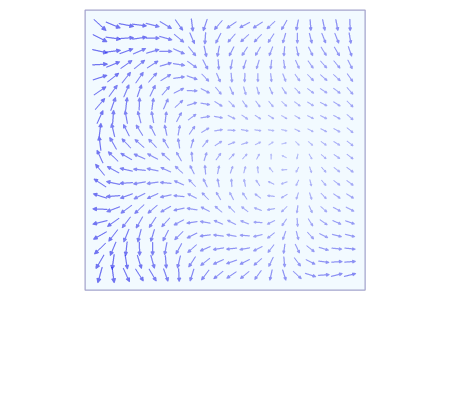-
The set of points in defined by is called the graph of the function .
-
The set of points in defined by is called the graph of the function .
-
Let be a two-variable function, and , the set of points defined by is called the level curve of at the level .
-
.
-
Let be a real-valued function of two variables defined on an neighborhood of the point .
- The function is said to be continuous at the point if . (assuming the limit exists)
- Partial Derivatives
- The partial derivative of with respect to at the point is defined as . (assuming the limit exists)
- The partial derivative of with respect to at the point is defined as . (assuming the limit exists)
- The directional derivative of , in the direction of the vector , in the point , is defined as .
- (Assuming the limit exists)
- Also denoted by
-
Let be a function of two variables, defined in a neighborhood of .
- is said to be differentiable at if there exist and function such that:
- in the neighborhood of
- is said to be differentiable at if there exist and function such that:
Multiple Integrals
double integral
- The double integral of a function over a region in the -plane is defined as , where:
- is the area of the rectangle
- is a point in the rectangle .
- If is a rectangle , then the double integral can be evaluated as .
triple integral
Line Integrals
Line integral of a scalar field

(source: commons.wikimedia.org)
- is the line integral of a scalar field along a curve , where:
- is an open set
- is a piecewise smooth curve parametrized by for .
- is the differential arc length along the curve .
this can be generalized to curve as follows: where for .
Line integral of a vector field

(source: commons.wikimedia.org)
- is the line integral of a vector field along a curve , where:
- is an open set
- is a piecewise smooth curve parametrized by for .
- is the differential displacement vector along the curve .
this can be generalized to curve where and for .
Surface Integrals
Surface integral of a scalar field
- (surface given parametrically) Given is a smooth surface parametrized by for .
- The surface integral of a over is , where:
- is continuous function defined on
- is the differential area element on
- is the normal vector to the surface at the point
- is equal to the area of the parallelogram formed by the tangent vectors and at the point .
- is the differential area element on the surface .
- The surface integral of a over is , where:
- (surface given implicitly) Given is a smooth surface defined implicitly by .todo
Surface integral of a vector field
- (surface given parametrically) Given is a smooth surface parametrized by for .
- The surface integral of a vector field over is , where:
- is continuous vector field defined on
- is the unit normal vector to the surface at the point
- is the component of the vector field normal to the surface at the point .
- The integral also called the flux of across , denoted by .
- is the called flux density of across
- The surface integral of a vector field over is , where:
Stokes’ Theorem
- where:
- is a smooth oriented surface with boundary
- is a vector field defined on an open region containing
- is the curl of
- is the vector area element of
- is the differential displacement vector along the boundary


